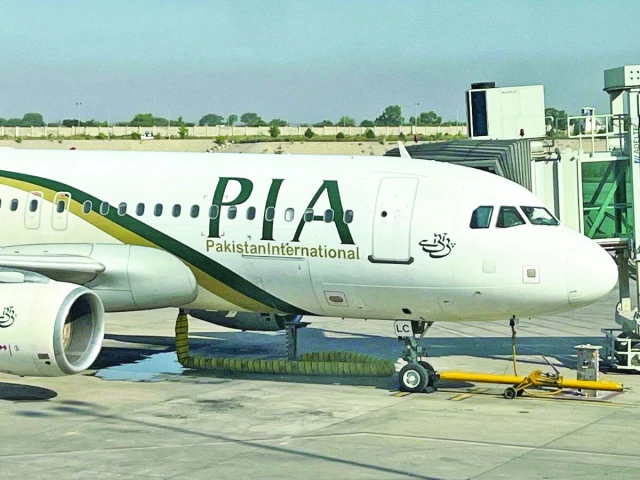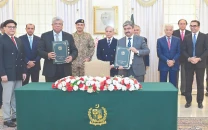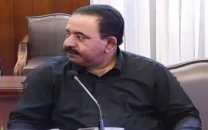PIA returns to UK skies after five years
London praises improved aviation safety standards; major 'breakthrough'; Manchester flight to restart operations

Britain has lifted a five-year ban on Pakistani airlines, allowing them to apply to resume UK flights just as the government steps up efforts to privatise the Pakistan International Airlines.
The ban was imposed in 2020, days after the government launched an investigation into the validity of pilot licences issued in the country following a PIA plane crash that killed 97 people.
British High Commissioner Jane Marriott said the lifting of the ban followed safety improvements by Pakistani authorities. The decision comes just months after the European Union took similar steps.
"I'm grateful to aviation experts in the UK and Pakistan for their collaborative work to drive improvements to meet international safety standards. While it will take time for flights to resume, once the logistics are in place, I look forward to using a Pakistani carrier when visiting family and friends," she said.
The lifting of the ban is expected to bring immense relief and opportunity to the over 1.6 million British residents of Pakistani heritage and thousands of British nationals living in Pakistan.
It also comes as a potential catalyst for enhancing the £4.7 billion bilateral trade between the two countries.
With airspace now cleared, the skies are once again open for stronger people-to-people connections and economic cooperation between Pakistan and the United Kingdom.
While several private Pakistani airlines operate domestically and on regional routes, primarily to the Middle East, PIA has historically been the only carrier to operate long-haul flights to Britain and the European Union.
PIA had previously estimated an annual revenue loss of around Rs40 billion ($144 million) due to the ban. The airline has long considered UK routes, including London, Manchester, and Birmingham, among its most profitable, and holds sought-after landing slots at London's Heathrow Airport that could become active again.
PIA's spokesperson said the airline was finalizing preparations to resume UK flights "in the shortest possible time" and had submitted its proposed schedule.
Flights would resume with the Islamabad-Manchester route, with three weekly flights planned initially pending schedule approval, the spokesperson added.
Earlier this month, the Privatisation Commission approved four groups to bid for a 51-100% stake in PIA. Final bids are expected later this year. The government is hoping that recent reforms, which led to the airline's first operating profit in 21 years - will help attract buyers under a broader IMF-backed privatisation push.
Defence Minister Khawaja Muhammad Asif told a news conference on Wednesday that the resumption of all routes would improve PIA's value ahead of the privatisation. He also said there were plans to restart flights to New York.
"Pakistan will apply for an operating licence to resume direct flights to the UK," he said.
Asif criticised an irresponsible statement by then-Aviation Minister Ghulam Sarwar Khan of the Pakistan Tehreek-e-Insaf (PTI) government for triggering the ban on PIA operations in European countries and the UK.
Ghulam Sarwar's remarks caused irreparable damage to the reputation of both PIA and Pakistan, he added.
In response to a question, he said that various consortiums had shown interest in the PIA privatisation process.
Meanwhile, Prime Minister Shehbaz Sharif, welcoming the UK Air Safety Board's decision, said the "positive development" would improve Pakistan's international reputation and further strengthen bilateral cooperation.
The prime minister also congratulated the defence minister on the lifting of the ban.
In a meeting held at the Prime Minister's Office, PM Shehbaz commended the efforts of the Defence Minister and his team, as well as the Aviation Division, for their dedicated work in achieving this diplomatic and operational breakthrough.
"The resumption of Pakistani flights to the UK marks an extremely important achievement for the country," the prime minister said, noting that this step would greatly facilitate travel for the large Pakistani diaspora in the UK and boost tourism between the two countries.
(With additional input from agencies)























COMMENTS
Comments are moderated and generally will be posted if they are on-topic and not abusive.
For more information, please see our Comments FAQ